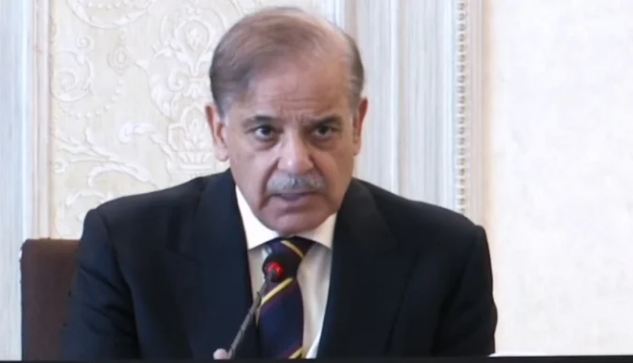ISLAMABAD, OCT 17: As Pakistan is witnessing heightened border tensions with Afghanistan amid rising terror attacks, Prime Minister Shehbaz Sharif on Friday said Pakistan could no longer bear the burden of hosting Afghan refugees indefinitely, directing authorities to ensure their immediate repatriation.
Chairing a high-level meeting in Islamabad on the repatriation of Afghan refugees, the premier reaffirmed Pakistan’s commitment to regional peace, regretting that the country had paid a heavy price for decades of instability in Afghanistan.
The meeting was attended by Field Marshal Syed Asim Munir, federal ministers, the prime minister of Azad Jammu and Kashmir, chief ministers of Punjab, Sindh, Balochistan, Gilgit-Baltistan, and a representative of the Khyber Pakhtunkhwa chief minister, along with senior federal and provincial officials.
“Pakistan had suffered thousands of lives lost and billions in economic damages during the war against terrorism,” he said, expressing concern over the recent cross-border attacks from Afghan soil.
PM Shehbaz said that despite repeated diplomatic engagements, including multiple visits to Kabul by the deputy prime minister, and defence minister, Afghan authorities had failed to prevent the use of their territory for attacks on Pakistan.
The prime minister paid tribute to Pakistan’s armed forces for repelling recent attacks from Afghanistan, praising Field Marshal Asim Munir’s leadership and the army’s professional capability in defending the nation.
He added that the Pakistani people who sacrificed in the war on terror were now asking when the government would end the burden of hosting Afghan refugees.
The forum was briefed that the repatriation of Afghan nationals had begun in phases, with 1,477,592 individuals returned to Afghanistan as of October 16.
Officials said no further extension would be granted, and only those holding valid Pakistani visas would be permitted to stay. The meeting was informed that exit points were being increased to facilitate speedy repatriation.
It was stressed that providing shelter to undocumented Afghans or hosting them in guesthouses was a “punishable offence”.
Meanwhile, PM Shehbaz directed that elderly persons, women, children, and minorities be treated respectfully during the repatriation process, and that the public should be made partners in ensuring compliance with government policy.
The prime minister also welcomed the cooperation of provincial governments and praised their support for implementing the federal policy on refugee repatriation.
The forum decided that all recommendations presented would be implemented strictly, with PM Shehbaz urging all provinces to provide full support to the federal government in ensuring the dignified and timely return of Afghan refugees.
Heightened tensions
Islamabad and Kabul are witnessing heightened tensions amid the Afghan Taliban regime’s reluctance to act against terrorist groups, operating from Afghan soil, in the backdrop of rising terror attacks in Pakistan.
The country has witnessed a surge in cross-border terror incidents since Taliban rulers returned to Afghanistan in 2021, particularly in the bordering provinces of KP and Balochistan.
The two nations share a porous border spanning around 2,500 kilometres with several crossing points which hold significance as a key element of regional trade and relations between the people across both sides of the fence.
However, the issue of terrorism remains a key issue for Pakistan, which has urged Afghanistan to prevent its soil from being used by groups such as the TTP to carry out attacks inside the former’s territory.
Islamabad’s reservations have also been confirmed by a report submitted to the United Nations Security Council (UNSC) by the Analytical Support and Sanctions Monitoring Team, which has revealed a nexus between Kabul and the TTP, with the former providing logistical, operational, and financial support to the latter.
Pakistan has hosted Afghans for more than four decades, from the Soviet invasion through the Taliban takeover in 2021. Some refugees were born and raised in Pakistan; others are still waiting for third-country relocation.
According to media reports, following a 2023 crackdown on undocumented Afghans and those exceeding legal status, more than 554,000 Afghans have been returned since April 2025 under Pakistan’s Illegal Foreigners Repatriation Plan — including around 145,000 in August.
According to security sources, masterminds and facilitators of terrorism are based in Afghanistan and are being supported by India.

















